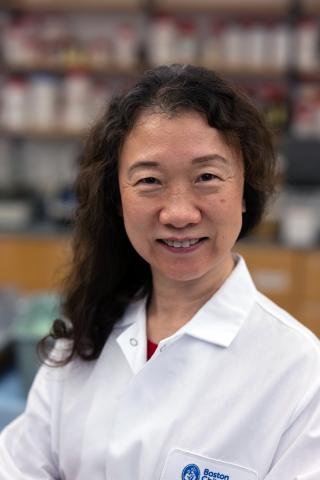Our Impact
Boston Children’s Hospital has been quietly changing the future of health for every child, here and around the world, since 1869. Named the number one hospital for care in the country, we are also the largest research center for pediatric medicine anywhere. Each year the conference proceeds benefit a new research initiative at Boston Children’s Hospital, as well as unique collaborations between Boston Children’s and the Broad Institute. Since inception in 2012, the Boston Investment Conference has generated more than $27M to accelerate the most promising research aimed at better treatments for sick children in the near term.
2025 Boston Investment Conference Awardee
In 2025, more than 2 million new cancer cases will be diagnosed in the United States, and around 600,000 people will die from its devastating effects. While cancer mortality rates have generally declined, some cancer types are increasing, particularly in younger adults. Current treatments are often toxic and, for too many patients, ineffective.
Destroying cancer cells safely and effectively
Hao Wu, PhD, is an internationally acclaimed scientist whose research has greatly enhanced our understanding of the body’s natural immune response to threats. Her groundbreaking work is informing the development of therapies for aging- and lifestyle-related diseases, including cardiovascular, neurodegenerative, and metabolic conditions. Now, she is pioneering research that aims to revolutionize cancer treatment by leveraging the body's own immune system to target and destroy cancer cells more effectively and safely.
In recent years, Dr. Wu and colleagues discovered that a protein called gasdermin D (GSDMD) creates openings in cell membranes, which lead to a type of cell death called pyroptosis. When GSDMD pokes tiny holes in cancer cells, it stimulates the immune system to attack tumors.
Since then, the Wu lab has identified a compound called DMB that can trigger GSDMD to precisely target tumor cells. In experiments with mouse models of breast cancer, colorectal cancer, lung cancer, and melanoma, DMB reduced tumor growth without damaging healthy cells. And when mice were vaccinated with cancer cells treated with DMB, they were protected from future tumors.
Importantly, mice treated with DMB did not lose weight, show increased signs of infection, or experience other health issues, suggesting that this therapeutic strategy can effectively stimulate the immune system to fight malignancies without inducing the significant side effects associated with many current cancer treatments.
Support from the Boston Investment Conference will enable Dr. Wu to use DMB and other promising compounds to develop more effective GSDMD activators for potential preclinical trials. This innovative research may change the future of cancer treatment, improving the lives of millions of patients around the world.

Hao Wu, PhD
Asa and Patricia Springer Professor of Structural Biology, Harvard Medical School Program in Cellular and Molecular Medicine
